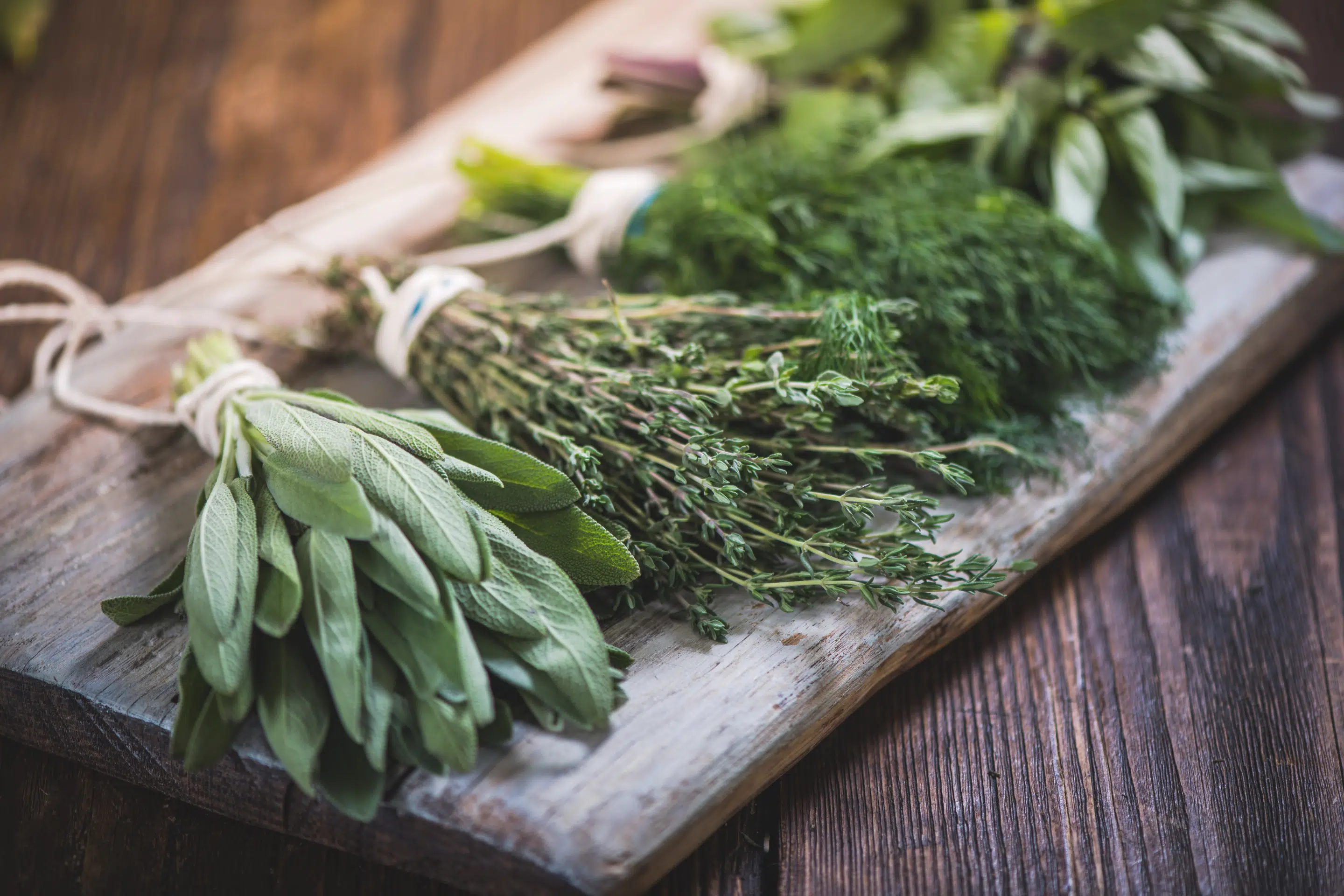In today’s fast-paced world, maintaining optimal gut health has become a crucial aspect of overall well-being. Fortunately, nature has provided us with a wealth of powerful herbs that can help support and enhance our gut health. By incorporating these herbs into our daily routines, we can embark on a journey towards improved digestion, enhanced nutrient absorption, and a stronger immune system.
How Herbs can Support Gut Health
Herbs have been used for centuries in traditional medicine systems for their therapeutic properties, and their benefits extend to supporting gut health as well. These natural allies work in various ways to promote a healthy gut microbiome, such as:
- Providing prebiotics: Certain herbs contain compounds that act as prebiotics, which feed and nourish the beneficial bacteria in the gut.
- Exhibiting antimicrobial properties: Some herbs possess antimicrobial properties that can help maintain a balanced gut microbiome by inhibiting the growth of harmful bacteria.
- Reducing inflammation: Many herbs have anti-inflammatory properties that can help soothe and calm an inflamed gut lining.
- Supporting digestion: Herbs can aid in digestion by stimulating the production of digestive enzymes and promoting healthy gut motility.
In addition, some herbs go a step further by providing a direct source of beneficial bacteria like Bifidobacteria, Lactobacillus, and Saccharomyces boulardii for the gut microbiome. These herbs can help replenish and maintain a healthy balance of gut bacteria, promoting overall gut health and well-being [1].
Best Herbs for Gut Health – an overview
While numerous herbs offer health benefits, some stand out as particularly potent allies in promoting a healthy gut microbiome. Here are some of the best herbs for gut health:
- Turmeric
- Ginger
- Peppermint
- Chamomile
- Fennel
In the following sections, we will delve deeper into the specific benefits and uses of each of these herbs for gut health.
Turmeric: A Powerful Herb for Gut Health
Turmeric, a vibrant spice widely used in Indian cuisine, has gained immense popularity for its numerous health benefits, including its positive impact on gut health. The active compound in turmeric, curcumin, is a potent anti-inflammatory agent that can help soothe and calm an inflamed gut lining [2].
Here are some key benefits of turmeric for gut health:
- Anti-inflammatory properties: Curcumin, the active compound in turmeric, has been shown to possess strong anti-inflammatory properties that can help reduce inflammation in the gut, which is often a contributing factor to various digestive issues [2].
- Antimicrobial effects: Turmeric exhibits antimicrobial properties that can help maintain a balanced gut microbiome by inhibiting the growth of harmful bacteria and promoting the growth of beneficial bacteria.
- Digestive support: Turmeric can stimulate the production of digestive enzymes, aiding in the breakdown and absorption of nutrients from the food we consume.
Ginger: A Digestive Aid for Gut Health
Ginger, a beloved spice in many culinary traditions, has been revered for its medicinal properties for centuries. When it comes to gut health, ginger is a true powerhouse, offering a range of benefits that can support digestive function and promote a healthy gut microbiome.
Here are some key benefits of ginger for gut health:
- Digestive support: Ginger has been shown to stimulate the production of digestive enzymes, which can aid in the breakdown of food and improve nutrient absorption.
- Anti-inflammatory properties: Ginger contains compounds like gingerol and shogaol, which possess potent anti-inflammatory properties that can help soothe an inflamed gut lining.
- Relief from nausea and vomiting: Ginger has been traditionally used to alleviate nausea and vomiting, making it a valuable ally for those suffering from digestive issues or morning sickness during pregnancy [3].
Peppermint: Soothing the Gut with this Herb
Peppermint, with its refreshing aroma and cool flavor, has been a staple in traditional medicine for centuries. This versatile herb offers a range of benefits for gut health, making it a valuable addition to any gut-friendly diet.
Here are some key benefits of peppermint for gut health:
- Antispasmodic properties: Peppermint contains menthol, which has been shown to have antispasmodic properties, helping to relax the smooth muscles in the digestive tract and alleviate symptoms of conditions like irritable bowel syndrome (IBS) [4].
- Analgesic effects: Peppermint has analgesic (pain-relieving) properties that can help soothe abdominal discomfort and cramping associated with digestive issues.
- Antimicrobial effects: Peppermint exhibits antimicrobial properties that can help maintain a balanced gut microbiome by inhibiting the growth of harmful bacteria.
Chamomile: Calming Effects on the Gut
Chamomile, a gentle and soothing herb, has long been revered for its calming properties. However, its benefits extend beyond relaxation, as chamomile can also play a valuable role in supporting gut health.
Here are some key benefits of chamomile for gut health:
- Anti-inflammatory properties: Chamomile contains compounds like apigenin and luteolin, which possess potent anti-inflammatory properties that can help soothe an inflamed gut lining [5].
- Antispasmodic effects: Chamomile has been shown to have antispasmodic effects, helping to relax the smooth muscles in the digestive tract and alleviate symptoms of conditions like irritable bowel syndrome (IBS) [5].
- Antimicrobial effects: Chamomile exhibits antimicrobial properties that can help maintain a balanced gut microbiome by inhibiting the growth of harmful bacteria.
Fennel: Supporting Digestion and Gut Health
Fennel, with its distinct licorice-like aroma and flavor, has been a staple in many culinary traditions around the world. Beyond its culinary uses, fennel has also been valued for its medicinal properties, particularly in supporting gut health and digestion.
Here are some key benefits of fennel for gut health:
- Digestive support: Fennel has been traditionally used to aid digestion by stimulating the production of digestive enzymes and promoting healthy gut motility.
- Anti-inflammatory properties: Fennel contains compounds like anethole and limonene, which possess anti-inflammatory properties that can help soothe an inflamed gut lining [6].
- Antimicrobial effects: Fennel exhibits antimicrobial properties that can help maintain a balanced gut microbiome by inhibiting the growth of harmful bacteria.
Incorporating these Herbs into Your Diet
Now that we’ve explored the powerful benefits of various herbs for gut health, it’s time to discuss how to incorporate them into our daily routines. Here are some tips for adding these gut-friendly herbs to your diet:
- Cooking with fresh herbs: Whenever possible, opt for fresh herbs in your cooking. Add fresh ginger, turmeric, or fennel to your dishes, or garnish your meals with fresh peppermint or chamomile leaves.
- Herbal teas: Enjoy a soothing cup of herbal tea made with gut-friendly herbs like chamomile, peppermint, or ginger. Herbal teas can be a convenient and delicious way to incorporate these herbs into your daily routine.
- Herbal supplements: If incorporating fresh herbs into your diet is challenging, consider taking herbal supplements in the form of capsules, tinctures, or powders. However, it’s important to consult with a healthcare professional to ensure you are taking the appropriate dosages and to avoid any potential interactions with medications or underlying health conditions.
Final Thoughts
In our quest for optimal gut health, nature has provided us with a treasure trove of powerful herbs that can support and enhance our gut microbiome. From the anti-inflammatory properties of turmeric and ginger to the soothing effects of peppermint and chamomile, these herbs offer a natural and holistic approach to promoting a healthy gut.
By incorporating these herbs into our daily routines, whether through cooking, herbal teas, or supplements, we can harness their potent benefits and support the delicate balance of our gut microbiome. However, it’s crucial to approach the use of herbs with caution and moderation, consulting with healthcare professionals to ensure safe and effective use. While herbs can be powerful allies for gut health, they should be used with some degree of caution and under the guidance of a qualified healthcare professional, especially if you have any underlying health concerns or are taking medications.
Remember, a healthy gut is the foundation for overall well-being, and by embracing the power of herbs, we can embark on a journey towards improved digestion, enhanced nutrient absorption, and a stronger immune system. So, let’s embrace these natural allies and embark on a path towards optimal gut health, one herb at a time.
Sources
[1] Vita, A. A., McClure, R., Farris, Y., Danczak, R., Gundersen, A., Zwickey, H., & Bradley, R. (2022). Associations between Frequency of Culinary Herb Use and Gut Microbiota. Nutrients, 14(9), 1981. https://doi.org/10.3390/nu14091981
[2] Jurenka J. S. (2009). Anti-inflammatory properties of curcumin, a major constituent of Curcuma longa: a review of preclinical and clinical research. Alternative medicine review : a journal of clinical therapeutic, 14(2), 141–153.
[3] Ernst, E., & Pittler, M. H. (2000). Efficacy of ginger for nausea and vomiting: a systematic review of randomized clinical trials. British journal of anaesthesia, 84(3), 367–371. https://doi.org/10.1093/oxfordjournals.bja.a013442
[4] Alammar, N., Wang, L., Saberi, B., Nanavati, J., Holtmann, G., Shinohara, R. T., & Mullin, G. E. (2019). The impact of peppermint oil on the irritable bowel syndrome: a meta-analysis of the pooled clinical data. BMC complementary and alternative medicine, 19(1), 21. https://doi.org/10.1186/s12906-018-2409-0
[5] Srivastava, J. K., Shankar, E., & Gupta, S. (2010). Chamomile: A herbal medicine of the past with bright future. Molecular medicine reports, 3(6), 895–901. https://doi.org/10.3892/mmr.2010.377
[6] Portincasa, P., Bonfrate, L., Scribano, M. L., Kohn, A., Caporaso, N., Festi, D., Campanale, M. C., Di Rienzo, T., Guarino, M., Taddia, M., Fogli, M. V., Grimaldi, M., & Gasbarrini, A. (2016). Curcumin and Fennel Essential Oil Improve Symptoms and Quality of Life in Patients with Irritable Bowel Syndrome. Journal of gastrointestinal and liver diseases : JGLD, 25(2), 151–157. https://doi.org/10.15403/jgld.2014.1121.252.ccm
https://www.medicalnewstoday.com/articles/can-herbs-spices-influence-gut-health-microbiome-bacteria
https://www.naturopathy-uk.com/news/blog/2023/11/16/5-herbs-for-gut-health/
https://www.parkwayeast.com.sg/health-plus/article/super-herbs-spices
https://www.rupahealth.com/post/top-10-herbs-for-intestinal-inflammation
https://rootfunctionalmedicine.com/best-herbs-gut-health
https://www.eatingwell.com/best-herb-for-gut-health-8669020
https://www.usenourish.com/blog/herbs-for-gut-health
https://www.yahoo.com/lifestyle/4-health-benefits-peppermint-easing-100039486.html








